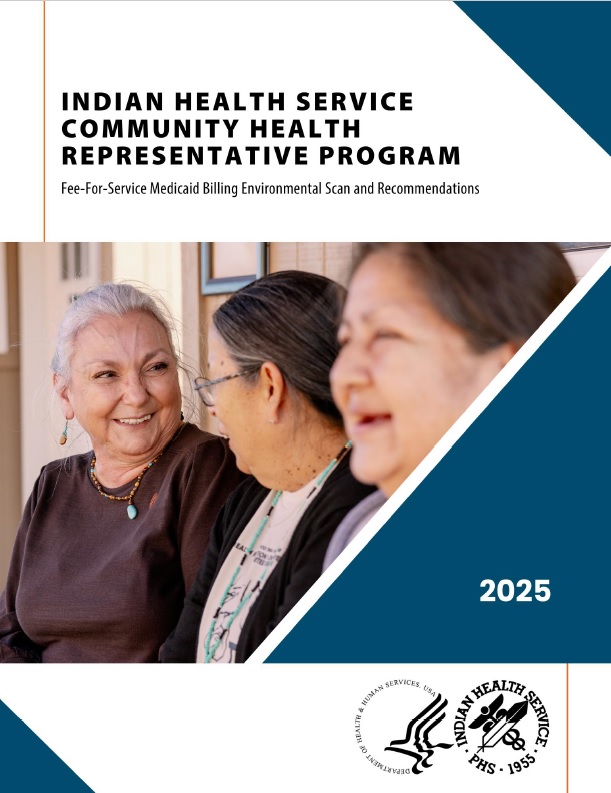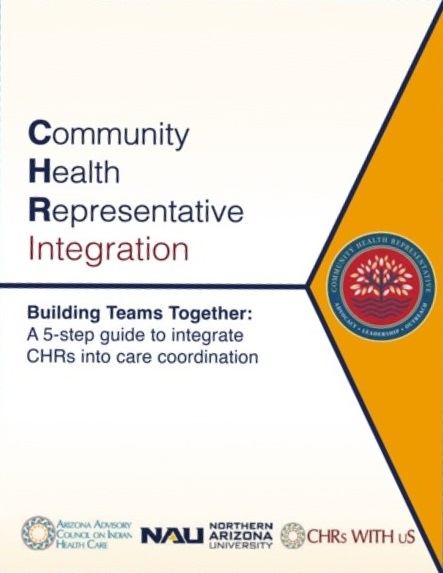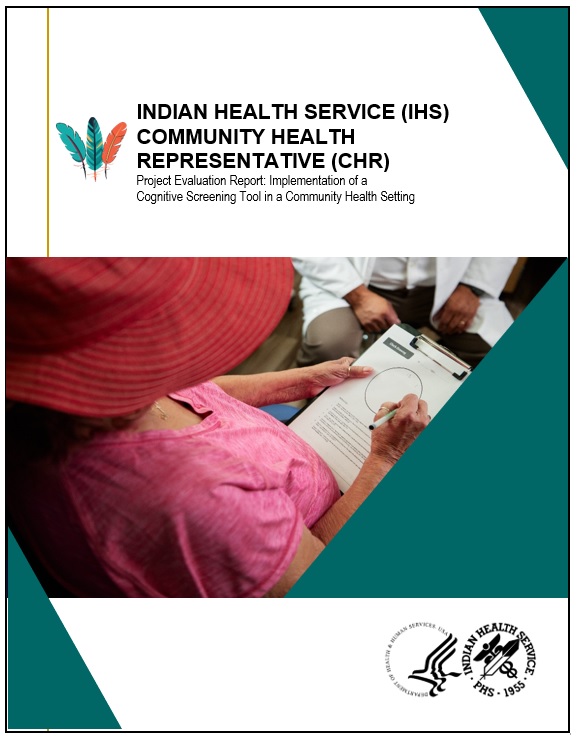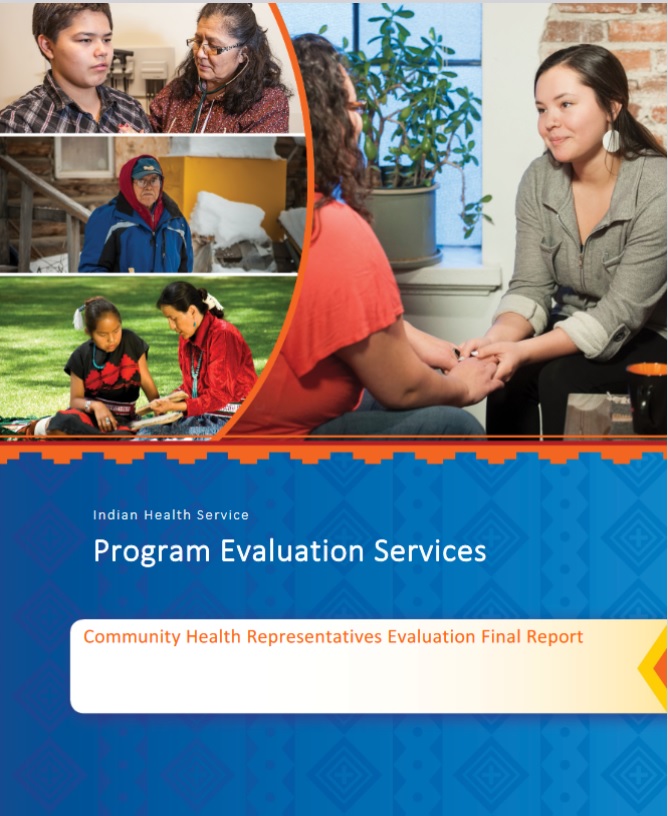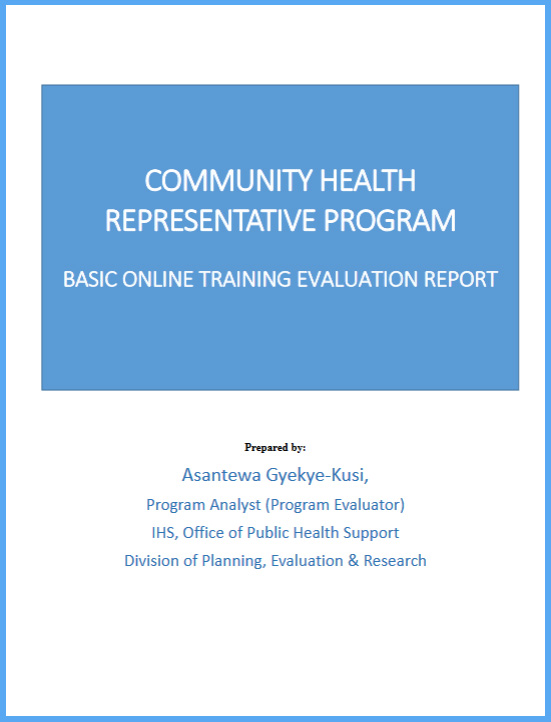Reports
The IHS Community Health Representative (CHR) program reports focus on evaluating and analyzing the efforts of CHRs, a national workforce of frontline public health workers who play a vital role in improving healthcare access and outcomes in American Indian and Alaska Native (AI/AN) communities. These reports highlight the contributions of CHRs in delivering outreach, education, informal counseling, social support, patient-centered care, and advocacy services. Through collaboration with tribal partners, policymakers, and community health stakeholders, these reports provide actionable insights, define key trends, and offer recommendations for strengthening CHR efforts. While not setting policies, they contribute to enhancing the health and wellness of AI/AN individuals, families, and communities by guiding effective health strategies and community capacity building.
CHR Fee-for-Service Medicaid Billing Environmental Scan
IHS CHR Fee-for-Service Medicaid Billing Environmental Scan Summary and Recommendations [PDF 714 KB]
As CHRs continue to navigate the Medicaid reimbursement opportunities available in states with fee-for-service CHW reimbursement, CHR programs in some states may face challenges in accessing reimbursement. An environmental scan of the 14 states with Medicaid reimbursement was conducted from the specific lens of a CHR program. Of the 14 states, only five states would allow for a CHR program (without significant program changes) to bill Medicaid for CHR services.
The report includes an environmental scan screening tool developed to ensure consistency in the data-gathering process by state. Key data collected included the Medicaid website and overview, MCO summaries, CHR programs in the state, training and supervision, the Medicaid enrollment process, certification, provider order/referral process, mode and location of service delivery, covered services, documentation, reimbursement process and rates, and billing limits.
As some information regarding CHW reimbursement policies was not clearly shared within public documents found on State Medicaid websites, the researchers reached out to individual Medicaid programs for clarification. However, not all Medicaid programs responded at the time of the report writing.
Research for this report and its findings were conducted in Summer 2024 by the Community Health Worker Collaborative of South Dakota (CHWSD) on behalf of the Indian Health Services (IHS). While significant efforts were made to connect with State Medicaid Programs to clarify answers about policy language, some states didn't respond to follow up questions. Therefore, assumptions were made based on individual interpretation of policy manuals. Should a State Medicaid wish to update this report with sourced changes to clarify findings, please email info@chwsd.org, subject line IHS Environmental Scan Report Findings.
CHR Integration Toolkit
The new Community Health Representative (CHR) Integration Building Teams Together Toolkit includes easy-to-use care coordination templates, tips and resources that map how CHRs support patients—from screenings and referrals to follow-up care and health education.
Community Health Workers (CHWs) are effective frontline public health workers who are trusted members of vulnerable populations because they share the same ethnicity, language, and life experiences as the communities they serve.
These templates can help your team:
- Communicate better
- Understand each team member's role
- Design CHR-integrated workflows
- Deliver coordinated, patient-centered care
Explore the workflow templates and other helpful tools in the new CHR Integration Toolkit.
CHR Dementia Project Evaluation Report
The purpose of this pilot project was to explore the feasibility of CHRs using the Mini-Cog brief cognitive screening in community settings, including a referral process to the clinical setting. The IHS DCCS CHR Program recruited six programs to participate in the six-month demonstration project. The CHR Dementia Project Evaluation Report [PDF - 1.5 MB] provides an overview of the first cohort of the pilot program activities and shares early evaluation findings to inform future year pilot process improvements.
IHS Program Evaluation Services CHR Evaluation Final Report
IHS Program Evaluation Services CHR Evaluation Final Report [PDF 1.35 MB]
This report presents findings from an evaluation of the IHS CHR program using four components: a literature review and overview of congressional testimony, key informant interviews, focus group discussions, and a survey. While evaluation respondents (including IHS leadership, CHRs, IHS Area CHR Representatives) see the CHR program as critical to the provision of culturally appropriate health care, they also shared challenges that may influence the program’s perceived impact. The report includes feedback and recommendations to help mitigate these challenges that emerged from the evaluation findings.
CHR Online Training Report
CHR Online Training Report [PDF 308 KB]
As a result of the change in mode of delivery of CHR training from in-person to web-based, the CHR program decided to evaluate the effectiveness of the online training by obtaining data from participants who have completed the CHR Basic online training. The purpose of this evaluation is to inform decision making aimed at improving training content as well as contributing to best practices for implementing CHR training.


